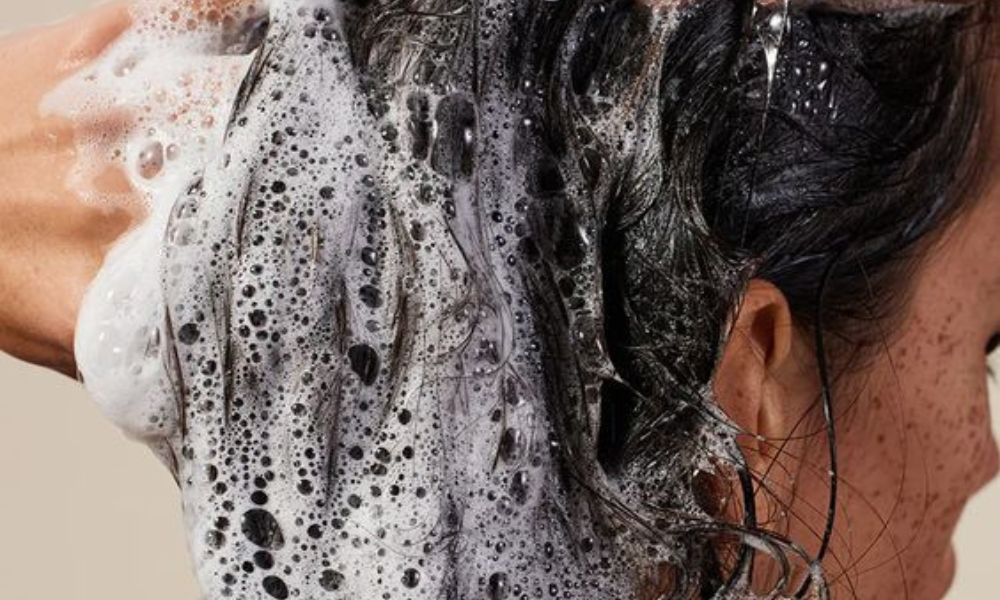Two years ago, I began my journey to going back to blonde (I was blonde in high school and swore I’d never go blonde again). At the time, I had jet-black hair, so I knew that if I went down this road, it would be a commitment. I knew my hair would likely have to be cut shorter, and I knew there would be *some* damage.
We all exfoliate our bodies to slough off dead cells in hopes of baby-soft skin. The same special treatment should apply to your scalp too, right? We wash, we condition, we mask, we slather oils—all great beauty habits, but healthy hair starts with a healthy scalp. And scalp care is indeed exploding. In the Pinterest Predicts report, they state that scalp massage techniques are up +55%, clean scalp is up +55%, scalp treatment for dry scalp is up +70%, natural hair mask for growth is up + 80%, and clean scalp build-up is up +45%. Looks like I’m not the only one dealing with this type of prob.
Alas, about a year into this long-winded hair transition, I started noticing my hair felt really dry and was constantly tangly. I felt like nothing I could do would make my hair soft. I tried OLAPLEX, warm oil treatments, and avocado hair masks, I even went to the hairdressers to do a more-profesh conditioning treatment.
No matter what I tried, the crown of my head and roots always felt heavy and greasy, even if I had just washed my hair. After awhile, I chalked it up as damage from the excessive bleach mixed with maybe using too much leave in conditioner or hair oil.
But at my hair appointment with Nicole Pidherny, Founder of Pomme Hair Salon, a different possibility came to light. As she began to assess my hair with this high-tech scalp magnifying machine, she asked: “Do you have hard water?” I had no idea wth she was talking about. I said, “What’s that??”
What Is The “Clean Girl Aesthetic” Trend?
So…WTF is hard water?
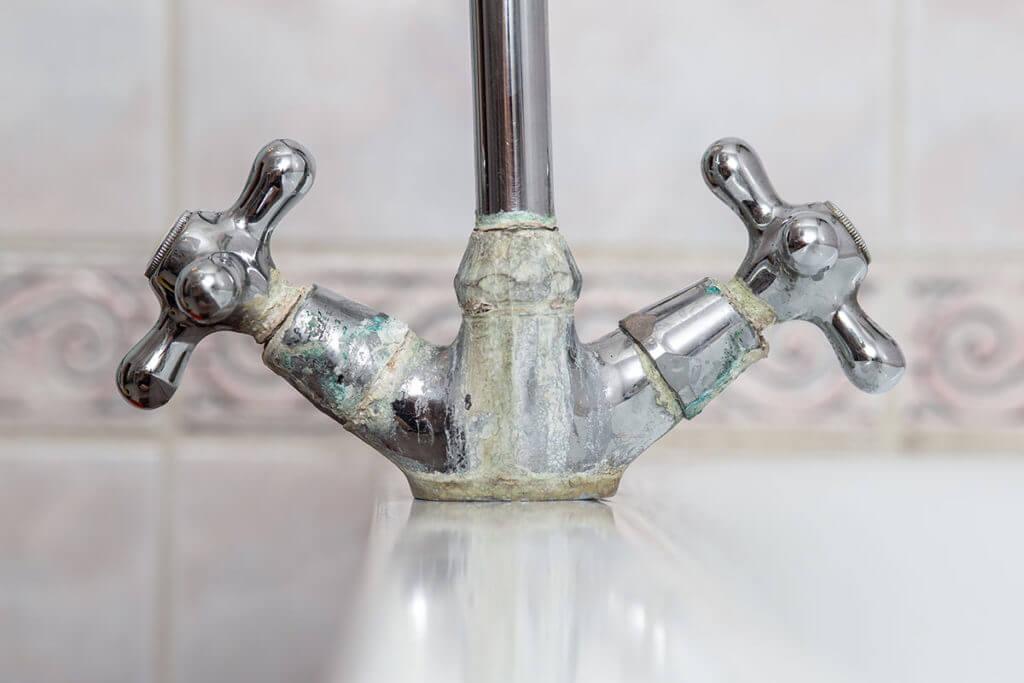
In a nutshell, hard water is water that has a high mineral content. It’s formed when water percolates through deposits of limestone, chalk, or gypsum, which are largely made up of calcium and magnesium carbonates, bicarbonates, and sulphates. This ultimately leaves a thick residue of gunk on your taps and bathroom tiles. The residue it leaves isn’t restricted to taps though. It stays on your hair and skin, too. That happens because the minerals in hard water react with sulphates in your shampoo and form this soapy white scum which leads to additional buildup on the scalp and hair strands.
How can you tell if someone has hard water buildup on their hair?
Brittany Da Silva, co-founder of HAIRGOD, also tells me, “Hard water deposits minerals in your hair every time you wash it and, over time, this can severely damage your hair. It may not always be visible to the human eye if someone has hard water build-up on their hair, but some things to look out for include:
- excessive dryness
- easily tangled / matted hair
- dull/faded colour
- dry scalp
- flakey scalp (dandruff)”
Sounds like everything I was dealing with...
Pidherny told me that I needed to detox my hair. She even told me that if you don’t, it can lead to a mold-like build-up. Come again? Mold? Pidherny says, “Basically, what’s happening is that there is so much calcium and mineral build-up that it is gnawing away at the links of our hair. Because of this, the hair breaks apart and fills in these holes with calcium. This build-up ultimately deteriorates the follicles and cuticle of the hair. It also settles on your scalp (which you may mistake with dandruff flakes, but it’s not – It’s calcium and mineral buildup).” She then tells me, “This is another reason why people with hard water struggle with coloured hair. If you coloured hair with a severe hard water build-up, it would lead to serious damage.
What happens if you dye someone’s hair that has hard water buildup?
Da Silva: “If you dye someone’s hair that has hard water buildup, the hair colour may not be able to fully penetrate the hair cuticle as the hard water can coat/leave a film on the hair strands. The buildup of hard water can also cause hair colour to fade very quickly, look dull (brassy), and may alter the colour / tone of the hair.
Pidherny: “When bleaching hair with hard water buildup, it’s critical to perform a detox first. I love using the Kérastase Première line to remove all buildup prior to a chemical service.”
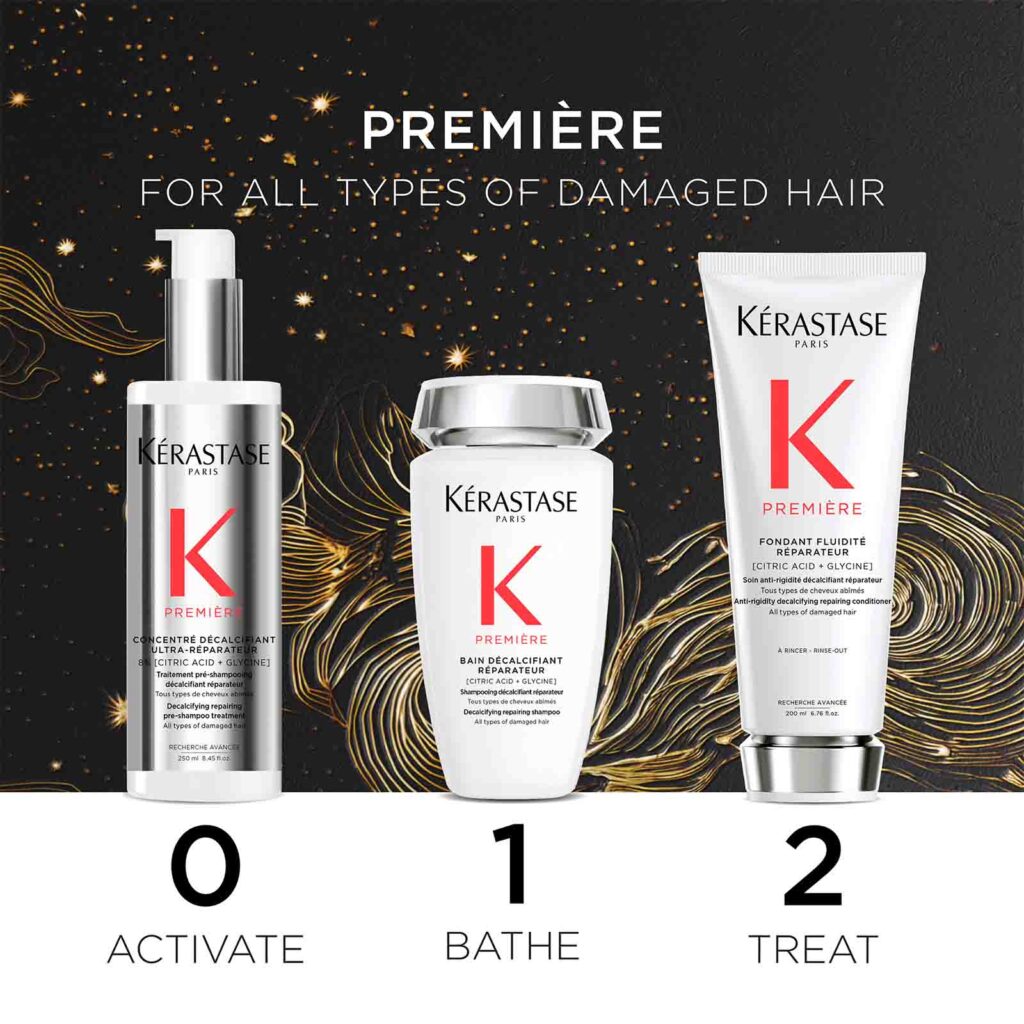
“Without doing some sort of detox, a chemical reaction can occur which can compromise the integrity of the hair strands,” says Pidherny.
So why is hard water so bad for your hair and skin?
Dr. Geeta Yadav, board-certified dermatologist and founder of FACET Dermatology says, “Hard water is called “hard” because it’s full of minerals that have leached from the soil into the water, with calcium being the most common. The calcium makes it harder for soap to lather, which results in an individual adding more to achieve a foaming effect—and subsequently, doesn’t do as good of a job rinsing away the soap. That leaves a buildup on the hair, skin, and scalp. Ultimately, this can leave skin dry, irritated, and congested while making hair look dull, greasy, and flat.”
Why Dry Skin Isn’t Just A Jerk In Winter, But In The Summer, Spring and Fall, Too
Can hard water cause eczema? What should you do if this occurs?
Dr.Yadav: “Hard water has been shown to increase the risk of childhood eczema; above all, hard water can make eczema symptoms worse, as well as those of psoriasis or general skin sensitivity. Eczema and psoriasis are skin conditions that are characterized by skin barrier dysfunction, and hard water exacerbates skin barrier dysfunction by causing an imbalance in the pH of the skin as well as damaging the skin’s natural lipids. Cooler water, gentle skin cleansers like those from brands such as Cetaphil and Cerave, and of course, thorough cleansing will help. Be sure to always moisturize the skin after showering and prioritize skin hydration and comfort by wearing soft fabrics made of natural fibres and skipping products that use synthetic fragrance, which can irritate the skin.”
Could You Have Eczema And Not Know? Check For These Telltale Signs!
What are the signs of an unhealthy scalp?
Pidherny: “Sensitivity and discomfort. Flakes (wet or dry) if your scalp is red in colour or is itchy. Sores. Cannot go longer than one day without needing a shampoo, or feeling like no matter what you do your hair or scalp feels like there is buildup on it.” Ouch!
What are the signs of a sensitive scalp?
Pidherny: “It’s painful or sensitive to brush. It hurts to have your hair brushed, coloured, combed, or touched!”
How do I know if I have an oily scalp or a dry scalp?
Pidherny: “If you find that you have to frequently shampoo, or you feel like your hair never really feels CLEAN. If you have no volume, flat hair, it won’t hold a style and it constantly feels like you have to shampoo, if your flakes are wet, then you most likely have an oily scalp. If you find your scalp is itchy, and you experience dry flakes, if it’s red, and if you find you have a frizzy texture or suffer from static, it likely means you have dry scalp.”
Nicole also recommends using a hair filter to ensure your scalp is reducing the amount of hard water that’s hitting your luscious locks.
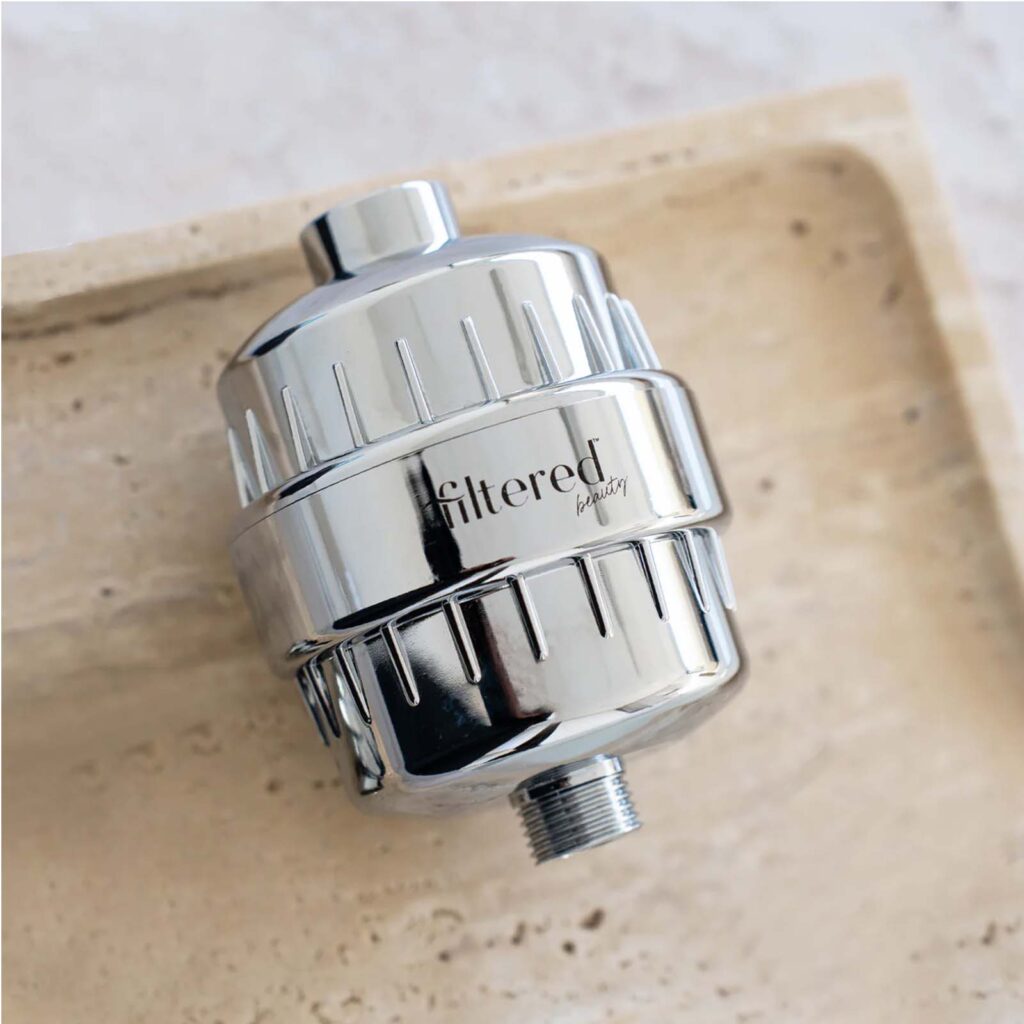
What is the difference between a dry scalp and dandruff? Can hard water cause both?
Dr. Yadav: “Dry scalp is just dry skin on the scalp, which can be caused or exacerbated by hard water. Dandruff is an excess of a form of yeast known as malassezia; hard water can make it challenging to properly treat dandruff with shampoo and cause the yeast to proliferate. However, hard water wouldn’t inherently cause dandruff, just worsen it.”
What type of treatment should you do if you have a dry scalp?
Da Silva: “A healthy scalp is a recipe for healthy hair. To avoid a dry scalp, irritation, and flakes, I recommend using Amazing Hair Saviour twice per week. This oil helps to protect hair from environmental stressors causing dryness/oiliness and balances the scalp. I apply this oil using a scalp massager to massage and distribute the oil evenly throughout my scalp, which helps to loosen any dry patches.
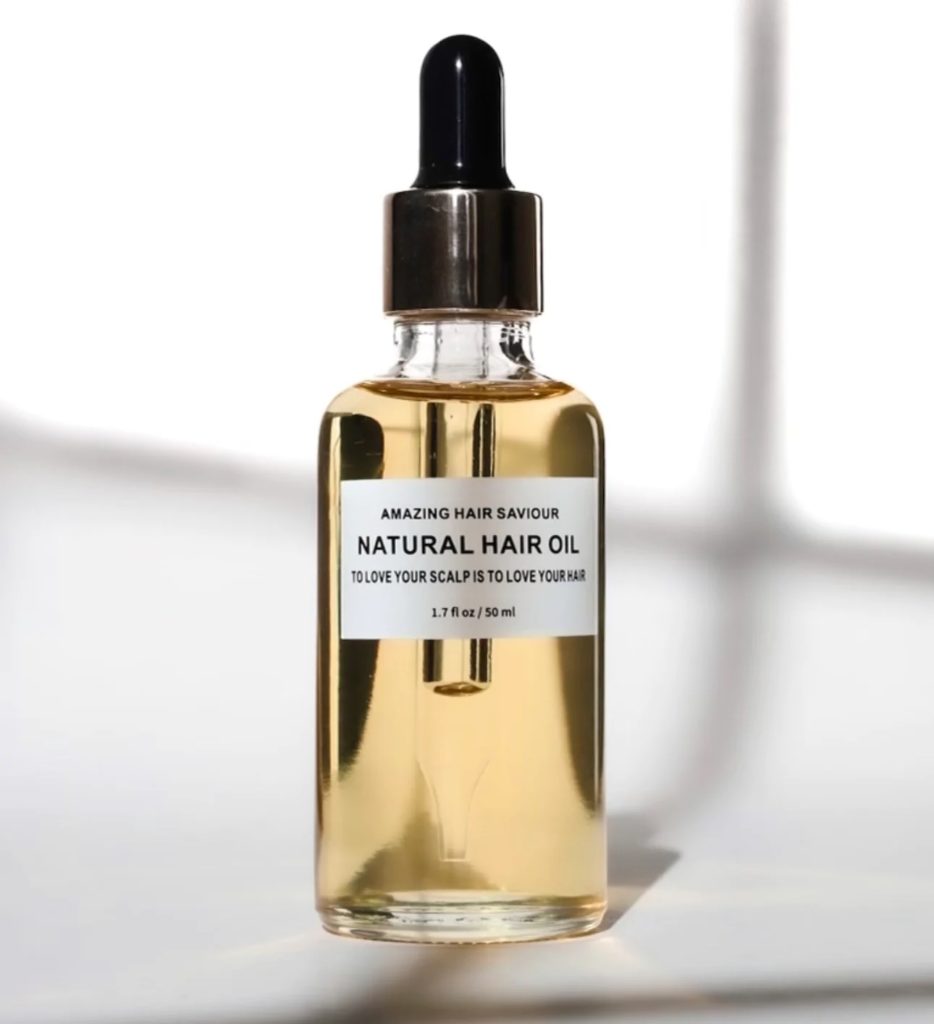
Can hard water cause hair loss? What should you do if this occurs?
Dr. Yadav: “Hard water can conceivably contribute to hair loss by congesting the hair follicle and inhibiting growth. Beyond taking the time to really scrub and rinse the scalp (a scalp massaging tool can help!), people with hard water should consider investing in a water softening technology to help reduce mineral content.”
Struggling with hard water buildup? Here are our tips:
Fortunately, Pidherny says, there are many things that can be done if you’re struggling with hard water buildup. Some of these include:
- Water softener shower head – Invest in getting a water softener shower head installed – this will help make hair soft by removing calcium, magnesium, and other minerals from the water.
- Clarifying shampoo like Première Reparative Duo from Kérastase, a clarifying shampoo will strip away some of the mineral buildups. Kérastase is amazing at preserving the health and vibrancy of hair exposed to hard water.
- A Scalp Massager– this multi-purpose massager stimulates blood flow on the scalp and improves hair growth. It’s amazing for washing hair and perfectly cleansing all dirt/debris off the scalp.

